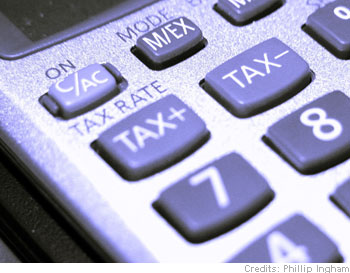 Congress is beginning to realize how expensive it will be to cap the dividends tax rate at 20% for those earning over $250,000 beyond the end of this year. Yesterday, House Ways and Means Chair Sander Levin (D-MI) told the Bureau of National Affairs that it would be “very expensive” and that there was no provision for exempting it under the Budget Act or for “paying for” it at a cost of $138 b. FY11-FY20.
Congress is beginning to realize how expensive it will be to cap the dividends tax rate at 20% for those earning over $250,000 beyond the end of this year. Yesterday, House Ways and Means Chair Sander Levin (D-MI) told the Bureau of National Affairs that it would be “very expensive” and that there was no provision for exempting it under the Budget Act or for “paying for” it at a cost of $138 b. FY11-FY20.
Congressional taxwriters have spent the last few months struggling to find ways to “pay for” $31 b. of extensions of expired tax provisions and would have a much more difficult time finding $138 b. worth. President Obama has proposed setting the dividends and capital gains rates at 20% for all taxpayers. So far, there have been no signs that Congress is ready to grapple with the issue of extending the 2001 and 2003 Bush tax cuts. It could easily fall over until a lame duck session after the election.
If nothing is done, under present law, the dividends tax rate for those over $250,000 would rise to 43.4%, equal to the 2011 top income tax rate of 39.6% plus the recently enacted HI tax of 3.8% on the unearned income of those over $250,000. If that’s allowed to happen, it will kill the stock market for a while.
Disclaimer: This page contains affiliate links. If you choose to make a purchase after clicking a link, we may receive a commission at no additional cost to you. Thank you for your support!



Leave a Reply